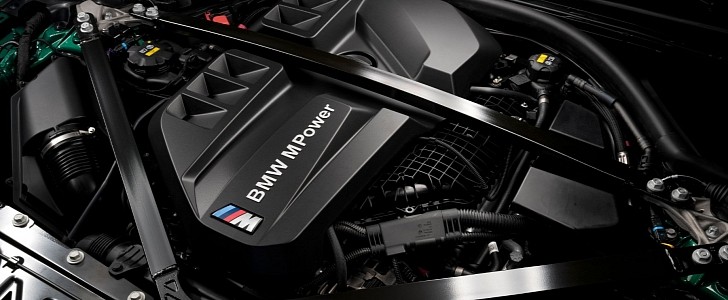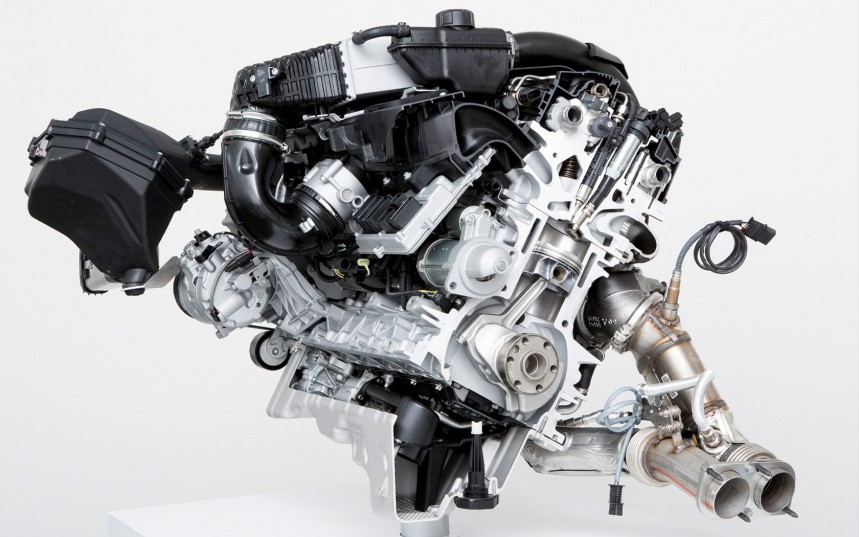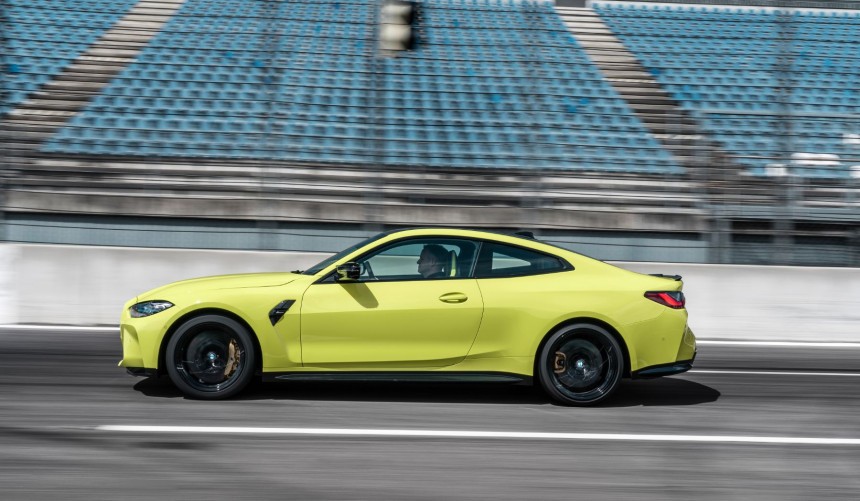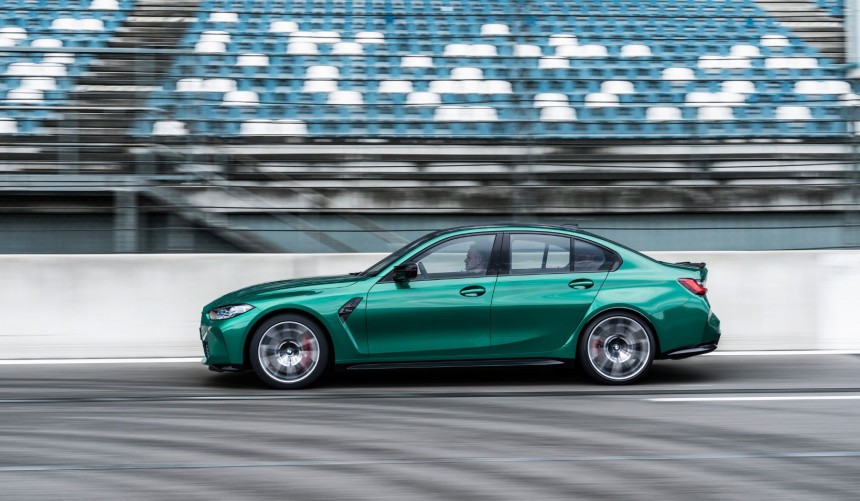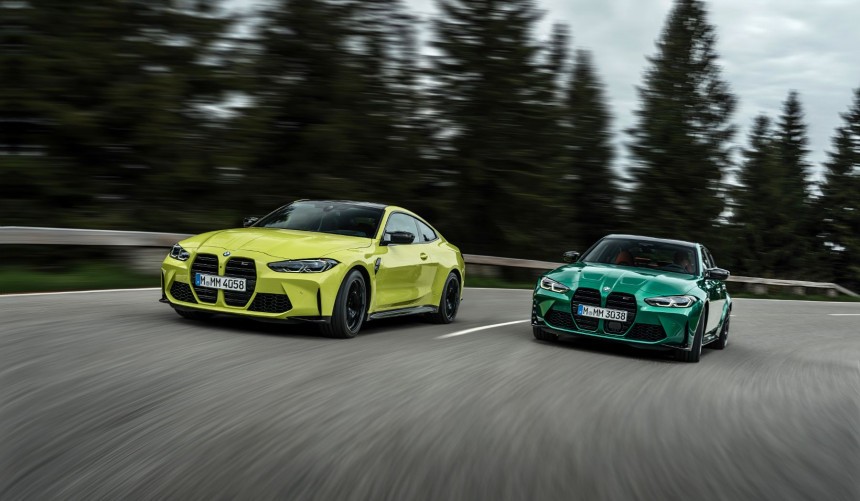Next month, the latest generation of the two high-performance models will arrive in dealerships with the new S58 engine under the hood. This article takes a closer look at this formidable six-cylinder to understand the new technologies it brings and how capable it really is.
Weird-looking grilles aside, the sixth-generation M3 and second-generation M4 are two incredible vehicles that benefit from the vast experience and technical innovations of BMW’s high-performance M division.
Although BMW M's legendary naturally aspirated engines have long been replaced by turbocharged versions to improve efficiency, the latest powerplant is still a work of automotive engineering art.
Codenamed S58, it debuted in 2019 on the M versions of the X3 and X4 crossovers, so it isn’t a brand-new, specifically developed unit for the latest M3 and M4.
The centerpiece of the S58 is the forged crankshaft made from chrome molybdenum heat-treated steel, which is further hardened during the later stages of development. It has very high torsional strength and resistance to wear while only weighing 19.4 kg (42.7 lbs).
The crankpins are grounded spherically to allow the bearings to run more smoothly, a manufacturing method typically found on race-spec crankshafts. Also borrowed from the world of motorsport are the high rev conrods made from special crack steel that connect to forged MAHLE pistons.
All six of them feature MAHLE Motorsport’s proprietary Grafal anti-friction skirt coating on the bottom ends, which allows for near-frictionless interaction with the wire arc sprayed cylinder bores.
Because the conrods use a sleeveless small end design manufactured using a special form-drilling technique, the steel piston pins are diamond-like carbon (DLC) coated to eliminate steel-on-steel friction.
The crank drive of this engine is deemed so effective and durable that M engineers will use it on the M4 GT3 that will compete in the legendary 24 Hours of Le Mans endurance race later this year.
To save weight and optimize coolant flow, the cylinder head features a 3D-printed core, and the entire oil and water-cooling systems are designed to ensure thermal stability at high revs.
Forced induction is courtesy of two mono-scroll turbochargers with electronically controlled wastegates and air-to-water intercooling. Coolant is supplied using a mechanical pump, while an additional electric pump allows the turbochargers to be cooled even after the engine has been switched off.
The S58 uses a high precision injection system that engineers claim is able to operate at over 5,000 psi (345 bar), delivering precise fuel atomization that not only helps provide plenty of power but also ensures improved emissions.
Moreover, the smooth power delivery is facilitated by BMW’s Valvetronic variable-valve timing technology and the Double-VANOS variable camshaft timing.
When fitted to the standard M3 or M4 chassis, the 3.0-liter (183-cu in) engine delivers 473 hp at 6,250 rpm and 406 lb-ft (550 Nm) of torque between 2,650 and 6,130 rpm, enabling the two German muscle cars to accelerate from 0 to 60 mph (96 kph) in 4.1 seconds. The top speed is 155 mph (250 kph) or 180 mph (290 kph) on vehicles fitted with the optional M Driver’s package.
On Competition models, the S58 receives further tuning, enabling it to spit out 503 hp at 6,250 rpm and 479 lb-ft (649 Nm) of torque between 2,750 and 5,500 rpm, reducing the 0 to 60 mph time to 3.8 seconds. The top speed these models can reach is identical to what the standard M3 and M4 can achieve.
Those eager to put this engine to the test on the latest M3 and M4 have only a few more weeks to wait since they're scheduled to be released in March. Standard versions can be purchased for a starting price of $69,900 for the M3 and $71,800 for the M4, while Competition models will demand around $3,000 more.
Although BMW M's legendary naturally aspirated engines have long been replaced by turbocharged versions to improve efficiency, the latest powerplant is still a work of automotive engineering art.
Codenamed S58, it debuted in 2019 on the M versions of the X3 and X4 crossovers, so it isn’t a brand-new, specifically developed unit for the latest M3 and M4.
The crankpins are grounded spherically to allow the bearings to run more smoothly, a manufacturing method typically found on race-spec crankshafts. Also borrowed from the world of motorsport are the high rev conrods made from special crack steel that connect to forged MAHLE pistons.
All six of them feature MAHLE Motorsport’s proprietary Grafal anti-friction skirt coating on the bottom ends, which allows for near-frictionless interaction with the wire arc sprayed cylinder bores.
The crank drive of this engine is deemed so effective and durable that M engineers will use it on the M4 GT3 that will compete in the legendary 24 Hours of Le Mans endurance race later this year.
To save weight and optimize coolant flow, the cylinder head features a 3D-printed core, and the entire oil and water-cooling systems are designed to ensure thermal stability at high revs.
The S58 uses a high precision injection system that engineers claim is able to operate at over 5,000 psi (345 bar), delivering precise fuel atomization that not only helps provide plenty of power but also ensures improved emissions.
Moreover, the smooth power delivery is facilitated by BMW’s Valvetronic variable-valve timing technology and the Double-VANOS variable camshaft timing.
On Competition models, the S58 receives further tuning, enabling it to spit out 503 hp at 6,250 rpm and 479 lb-ft (649 Nm) of torque between 2,750 and 5,500 rpm, reducing the 0 to 60 mph time to 3.8 seconds. The top speed these models can reach is identical to what the standard M3 and M4 can achieve.
Those eager to put this engine to the test on the latest M3 and M4 have only a few more weeks to wait since they're scheduled to be released in March. Standard versions can be purchased for a starting price of $69,900 for the M3 and $71,800 for the M4, while Competition models will demand around $3,000 more.
